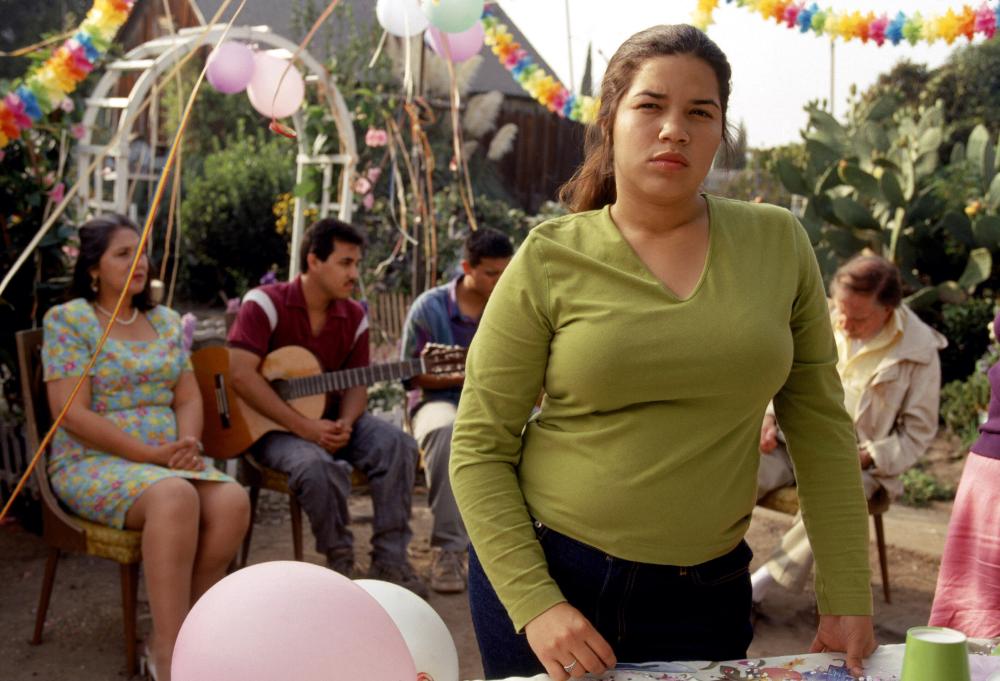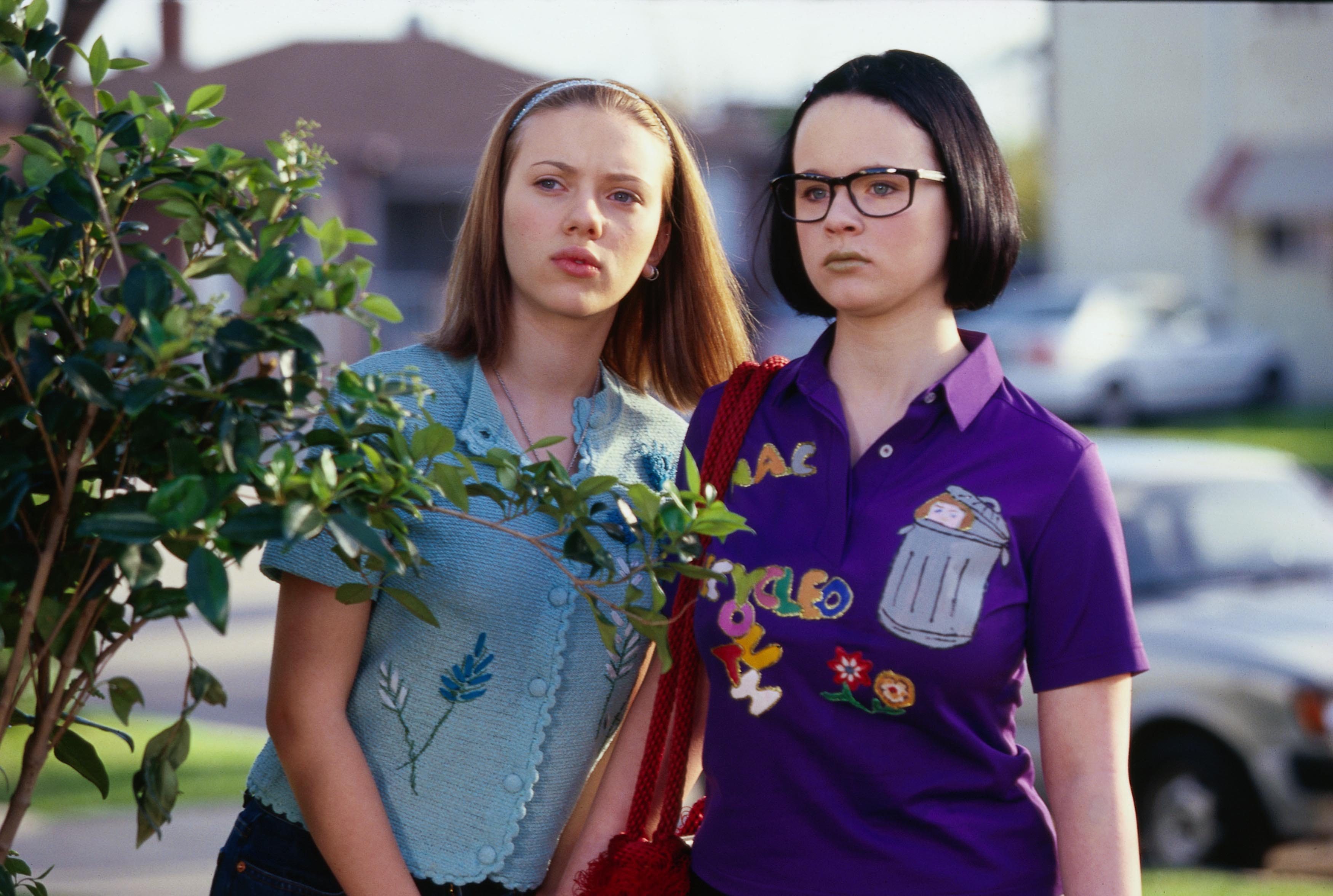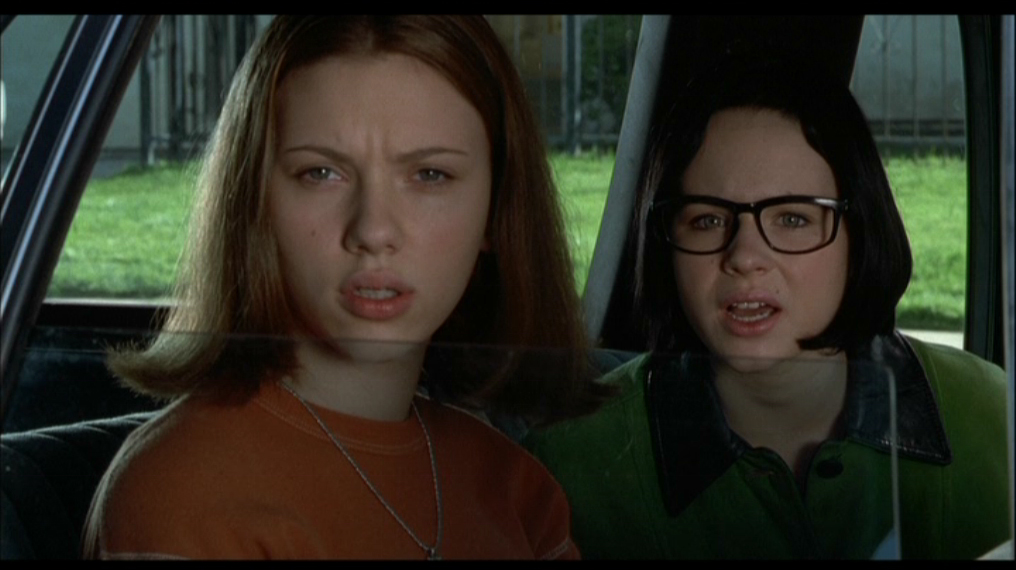![]()
What We’re Watching: Coming of Age
films for times of transition: teenager to adult, self-deprecating to self-possessed, or fucked to even more fucked.
By The film team
3.2.2022
This month, we each watched a film that focuses on a time of hormone-fueled transition, be it from teenager to adult, self-deprecating to self-possessed, or fucked to even more fucked.
Natalie Duerr
Real Women Have Curves (2002)

Real Women Have Curves is a film I wish I had watched a long time ago. The story follows Ana (America Ferrera) during the tender months between graduating high school and starting college. Her mom thinks she should delay college, stay at home in East Los Angeles and work in her sister's factory. Ana disagrees—the world that Ana's parents have built around her doesn't seem big enough anymore, and she applies to Columbia University. While the narrative centers on this mother-daughter conflict, it manages to deliver an intersectional story by incorporating aspects of the Mexican-American experience, factory working conditions, and body image into the narrative as well.
Perhaps my favorite scene from Real Women Have Curves is a moment when all of these themes collide. As the temperature rises in the dress factory, Ana takes her shirt off and encourages the other women to do the same. Ana's self-acceptance and carefree attitude towards her body mortifies her mother, who tells her to put her shirt back on. Instead, the other women take the shirts off and laugh as they compare their stretch marks and cellulite. I think a younger version of me who was insecure about their body would have felt immensely comforted by this celebration and seeing Ana love herself regardless of her weight, not despite it.
Maiya Pascouche
500 Days of Summer (2009)

Is it just me or is this movie actually a coming-of-age film?
Lizzie Racklin
Ghost World (2001)

In Ghost World, we follow disaffected teenagers Enid and Rebecca in the months following their high school graduation, which they don’t care about at all. Armed with disdain for the uncool (everyone) and cynicism for the contrived (everything), Enid and Rebecca refuse to go to college, instead focusing on their dream of living in an apartment together. However, as the reality of these dreams creeps closer, Enid pulls away, wary of Rebecca’s enthusiasm for plastic cups and built-in ironing boards (chic!). For someone who hates everything, growing up seems like the worst option. She and Rebecca wander through the Americana wasteland of their hometown, approaching their future with conflicting aspirations. Rebecca, though still perpetually annoyed and superior, seems ready to evolve, while Enid isn’t so sure.
As her drawings go under-appreciated in her mandatory summer art class, Enid befriends Seymour, a 30-something who she sees as “the exact opposite of everything [she] really [hates].” In contrast to the “extroverted, obnoxious, pseudo-bohemian losers” she knows, Seymour slouches away from attention and obsessively collects old blues records. In other words, he shows her that she can, in fact, cling to her adolescent compulsions.
Just when Enid’s spiky cynicism and directionless discontentment and Thora Birch’s deadpan delivery begin to feel like a one-note caricature of teenage detachment, she shows the softness underneath. She dyes her hair green and, when she realizes that her 70s punk look is being misread as “modern,” she re-dyes it to its natural color. She dances around to a 1960s Bollywood movie. She sobs on her bed after a fight with her best friend. She feels the sting of everything just acutely as her victims feel the impact of her insults.
When Enid and Seymour’s relationship turns sexual, it’s fucking hard to watch—she’s vulnerable and he’s old and Steve Buscemi. Enid backtracks, tells Rebecca that she can’t move in with her and instead, feeling like a disappointment with no trajectory, boards an empty bus out of town. It’s up to the viewer where the bus is heading or what it means, but it’s a fitting ending to a bittersweet movie about embracing life’s letdowns. Barring the film’s touchy racial politics, there’s also an angle here on consumerism and conformity—a take that’s mirrored in the film’s departure from the keg party-filled, prom-obsessed teen movies of the 2000s (which we also love).
What does it mean to come of age? Does it mean you have a life-changing romance, learn to love yourself, and look sunnily to the future? Or can it mean you feel just as fucked as ever?
Following the coming-of-age formula, Enid and Rebecca would head off to the big city, full of love and dreams and butterflies. In Ghost World, teenage angst is honored with empathy and humor, and is then validated by being allowed to endure.

